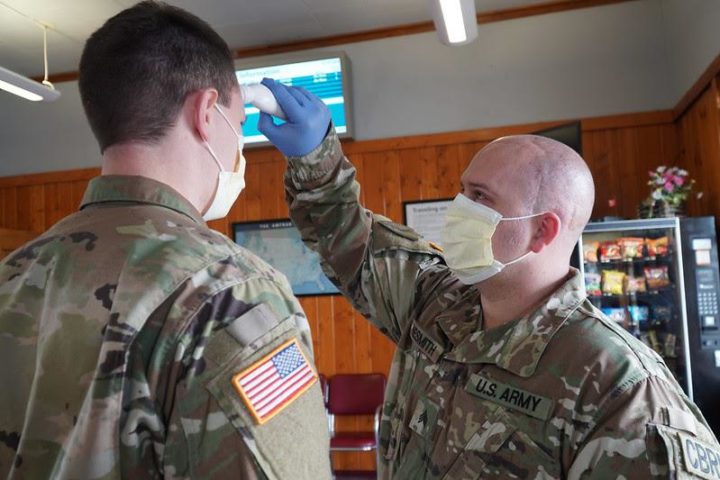By Jhon Sánchez
I’m not planning to spend money on haircuts. Since I don’t go out, I decided to buy a pair of scissors and do it myself, at least for now. It’s not only a budgetary decision but also consideration regarding my health because I want to limit my exposure to public spaces. I guess many of us are making those decisions now. As a nation, we need to ask ourselves if we need the same level of military expenditure for 2020. How likely is the need for the United States to defend itself from a foreign attack in the middle of a pandemic? What are soldiers doing right now?
Professor Joshua Rovner, former scholar-in-residence at the National Security Agency and US Cyber Command, gives us some guidance in an interview granted to Emily Priborkin, at American University, “The problem is that COVID-19 makes it difficult to maintain ready forces. Pandemics encourage militaries to stand down, just as they encourage people to stay home. Naval patrols are especially hard because ships are at risk of becoming hot spots for the virus, as we saw with the USS Theodore Roosevelt. But the problem doesn’t stop with the Navy; land forces also are struggling to maintain training and exercise routines.”
Billions of dollars in defense spending increases won’t solve this pandemic.
It’s about time we see taxpayer dollars support the American public—not line the pockets of defense contractors.
I led 29 Democrats who agree: we must decrease defense spending. https://t.co/2fvjBxMffh
— Rep. Mark Pocan (@repmarkpocan) May 22, 2020
Other countries are taking the same initiative as Derek J Grossman highlighted.
Please note: decrease in official Chinese defense spending hike this year (6.6%) compared to last year’s rise (7.5%) doesn’t mean the PLA is any less lethal. Also hard to believe spending figures accurate to begin with, but that’s another story altogether. https://t.co/qPBnTCDUed
— Derek J. Grossman (@DerekJGrossman) May 22, 2020
Regarding this, Professor Rovner says, “[t]hat does not necessarily mean giving up on great power competition. A more modest approach would rely on other US advantages and put less stock in military swaggering. For decades, the United States has reaped the benefits of political stability, economic strength, and educational excellence. The pandemic may inspire a serious effort to shore up these sources of power, even it if means reducing our foreign military footprint. The blessings of geography give us the time and space to make this happen. Of course, this requires that we view great power competition as a long-term effort to ensure national security, not a daily struggle to demonstrate military might.”
This idea also has sounding among Republicans, according to Mackenzie Eaglen, a former congressional adviser on defense matters. (Military Faces another Potential Coronavirus Toll. Military Cuts by Missy Ryan,Washington Post)
Maybe, the COVID19 crisis is giving us the opportunity to redirect our priorities, and peace activists would have good ground to seed their ideas for the future. Today, more than ever, we can gain from the military budget cuts and make permanent investments in education, health, and housing.










